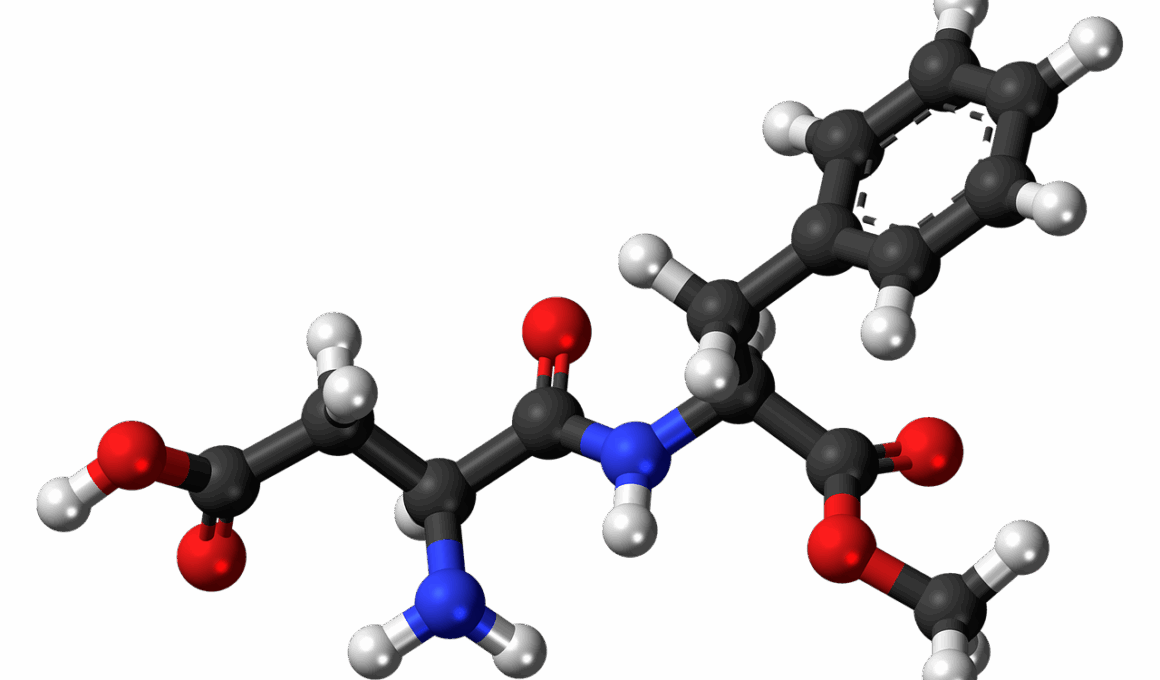Artificial Sweeteners and Insulin Response: Scientific Insights
Artificial sweeteners have become quite popular in our modern diet due to their low-calorie content and ability to satisfy sweet cravings without the added sugars. However, many people harbor misconceptions regarding their effects on insulin response. One prevalent myth is that artificial sweeteners trigger insulin release similarly to sugar consumption. This myth stems from the belief that the sweet taste itself may provoke an insulin response. Yet scientific studies indicate that these sweeteners, such as aspartame, sucralose, and stevia, do not significantly affect insulin levels in healthy individuals. The absence of caloric content contributes to lower hormonal responses generally. Researchers have examined the links between artificial sweeteners and glucose regulation, yielding varied results, but a consensus that they do not trigger insulin spikes, unlike naturally occurring sugars. Some studies even suggest that, when consumed in moderation, these sweeteners may aid in weight management and diabetes control. An important point is that the response to artificial sweeteners can differ among individuals, depending on metabolic health and gut microbiome composition, highlighting the need for further research to clarify the physiological impacts.
Additionally, research has explored long-term effects of artificial sweeteners on insulin sensitivity. Some studies propose that while short-term consumption does not seem to affect insulin levels, long-term use might result in altered insulin sensitivity in certain populations. The complexity of human metabolism and varying responses means that while artificial sweeteners might be safe for many, nuanced responses are possible for others. Debates persist in the scientific community about the gut-brain connection, indicating that artificial sweeteners might influence cravings and metabolic health through different pathways. For example, artificial sweeteners are suggested to interact with sweet taste receptors, which could play a role in energy balance regulation. Although this interaction isn’t well understood, it provides a basis for further inquiry into their long-term viability as a sugar substitute. Behavioral aspects must also be evaluated, as individuals consuming these sweeteners might find themselves compensating by indulging in other caloric foods. Therefore, it’s important to approach artificial sweeteners judiciously, understanding both their potential advantages and drawbacks to develop a well-rounded nutritional strategy.
Despite controversies surrounding artificial sweeteners, they can present various benefits when incorporated into a balanced diet. Many individuals use them for healthier weight management, aiming to reduce excess sugar consumption. This shift can lead to decreased calorie intake, promoting overall health. Moreover, they are particularly valuable for people with diabetes, allowing them to experience sweetness without challenging their blood sugar levels. By bluntly avoiding sugars, these sweeteners enable those with diabetes to enjoy treats and maintain their stability without serious risks. Nonetheless, avoiding excessive reliance on these substitutes is prudent, as it may pave the way to dietary imbalances. Their introduction may cause some individuals to perceive that consuming rich desserts is permissible, which could lead to overeating other calorie-dense items. Hence, moderation should remain crucial when opting for artificial sweeteners in one’s diet, focusing on maintaining a balanced array of whole and nutrient-rich foods as primary dietary choices. The overarching goal should be to implement artificial sweeteners smartly while not losing sight of the foundational aspects of nutrition, ensuring consumables contribute positively to individual health and wellness objectives.
The Role of Research in Understanding Sweeteners
Research plays a substantial role in unraveling the complexities surrounding the consumption of artificial sweeteners and their impact on key metabolic factors like insulin response. Continuous scientific inquiries are imperative as they provide benchmarks for assessing both short-term enjoyment and long-term health aspects. Emerging data consistently assess the effects of various sweeteners on different population characteristics, thereby offering insights into susceptibility to insulin-related issues. For example, studies have indicated that individual metabolic rates and genetic predispositions can affect responses to these sweeteners. Given the mixed outcomes associated with prolonged use, there is a discernable need for more detailed investigations into diverse populations and variable consumption levels. Furthermore, research often explores not just direct hormonal impacts but additional factors, like gut microbiome interactions that may inadvertently shape an overall health profile. Much of the evidence remains inconclusive, emphasizing the necessity for larger-scale studies to validate findings. Hence, a comprehensive understanding of how artificial sweeteners impact insulin mechanisms requires ongoing research efforts coupled with informed dietary decisions and individual awareness.
While many reports deem artificial sweeteners generally safe, discussions around their credibility often introduce skepticism regarding misinformation, particularly in the context of insulin responses. Debunking misconceptions is vital as consumers seek clarity in their dietary choices, especially when navigating health concerns such as diabetes or weight management. Intriguingly, some people may still refrain from using artificial sweeteners due to fear of potential side effects, which may not be universally warranted. Clear communication about the latest research findings serves as a foundation for fostering informed choices. Along with educational initiatives, emerging marketing strategies must present these sweeteners not just as calorie-free alternatives but as part of a comprehensive approach to improved dietary habits. By emphasizing the importance of moderation, food education campaigns can enable individuals to utilize sweeteners judiciously, mitigating the likelihood of punitive approaches toward them. As there’s no one-size-fits-all solution in nutrition, addressing concerns surrounding artificial sweeteners equips consumers with essential knowledge while promoting their potential benefits based upon scientifically backed information.
It’s essential to note that the public perception of artificial sweeteners has become polarized, often swayed by emotional responses rather than empirical evidence. Many individuals claim that consuming artificial sweeteners negatively affects their health, including experiences of discomfort or alterations in appetite. Addressing personal testimonies is crucial, as these individual experiences can influence broader perceptions, pushing specific narratives within the dietary framework. Acknowledging that everyone’s body reacts differently to various artificial substances reinforces the need for personalized dietary recommendations. In this regard, nutritionists emphasize the importance of balancing scientific findings with individual preferences and responses, creating a tailored approach that accommodates personal wellness goals. Educational outreach could serve as a means to align scientific consensus with public understanding, thereby demystifying fears perpetuated through anecdotal stories or misinformation. By bridging the gap between empirical research and relatable narratives, advocates can position artificial sweeteners in a truer light, emphasizing their role as useful tools in modern diets aimed at enhancing health outcomes when consumed responsibly.
Conclusions and Future Perspectives
In conclusion, understanding the relationship between artificial sweeteners and insulin response illuminates the importance of different dietary elements in influencing health. Ongoing research endeavors aim to clarify their true role in nutrition while navigating easily misinterpreted data and myths pervasive in society. As knowledge expands in this field, individuals must engage critically, weighing the scientific evidence against personal preferences and individual physiological responses. Adopting a holistic diet that responsibly incorporates artificial sweeteners, focusing on overall dietary balance rather than solely concentrating on individual components, stands as a prudent approach. This represents an evolving viewpoint that brings about better nutrition. Future studies must integrate broader demographics and lifespan spans to analyze the ramifications of long-term artificial sweetener consumption, ultimately working toward understanding how these sweeteners fit into the diet landscape sustainably. As dietary patterns evolve, ongoing conversations among health practitioners, consumers, and researchers will ultimately shape practices, encouraging the adoption of informed approaches rooted in a growing repository of scientific knowledge. Thus, fostering a culture of education and curiosity surrounding nutrition enhances public understanding and improves health strategies moving forward.


